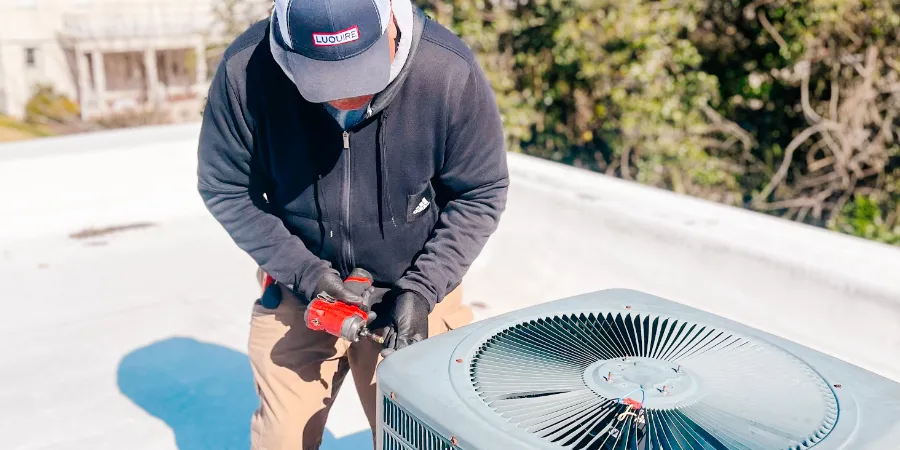Choosing a suitable HVAC solution for the house can seem daunting, especially due to the numerous selections and technical features to take into account. If you are building a brand new house, remodeling, or merely aiming to improve your existing system, comprehending the meaning of HVAC and its operation is vital. HVAC stands for temperature control, air flow, and air conditioning, and it holds a crucial role in guaranteeing a comfortable environment in your home all year long. This introductory guide will navigate you through the main elements of HVAC systems, typical challenges and their solutions, and maintenance tips to ensure your system operates effectively.
As you investigate the different kinds of HVAC systems available, you will find that each comes with its own set of characteristics and advantages. From https://yamcode.com/top-indicators-your-hvac-system-demands-an-update-2 to up-to-date ductless mini-splits and geothermal heat pumps, the selections can be intimidating. Grasping how different systems impact energy efficiency and indoor air quality can assist you choose wisely that addresses your comfort needs but also fits your financial plan. By the end of this piece, you will be prepared with important information to choose the right HVAC system for your home and experience a comfortable living environment year-round. spintax #### Comprehending HVAC Installations
HVAC is an acronym for Heater, Air Circulation, and Temperature Control, the three key components responsible for creating indoor comfort. An HVAC system manages climate, humidity, and air purity within home and industrial spaces. Understanding each of these components is essential for determining the right system for your house or company. Heating includes various approaches to warm indoor areas, while air conditioning cools and dehumidifies the air. Breathing systems maintains a continuous circulation of new air to create a healthy atmosphere.
An HVAC system generally is made up of a heating unit or heat pump for heat generation, an AC for cooling, and air distribution channels or additional means of circulating conditioned air around the space. Modern systems may additionally include connected thermostats, air cleaners, and humidity control features, that improve both comfort and efficiency of energy use. By enhancing these components, property owners can attain a pleasant living space while reducing energy bills.
Furthermore, comprehending the interplay of these components can assist in solving common issues and making informed decisions about upkeep and enhancements. Regular care and prompt repairs are crucial to prolonging the lifespan of an HVAC system. As technology advances, latest innovations arising within the HVAC industry offer better energy conservation and better indoor air quality, further benefiting health and well-being in homes and work spaces too.
Common HVAC Issues and Resolutions
One of the most common issues householders face with their HVAC units is inadequate heating or cooling. AC installation can stem from various sources, including a dirty air filter, which limits airflow and reduces efficiency. A different potential cause is improperly sealed ductwork, which can lead to substantial energy loss. To address this problem, start by checking and replacing air filters periodically, and check ductwork for any leaks that need sealing.
An additional prevalent issue is the strange noises coming from the HVAC system, such as clattering, banging, or whistling. These sounds can indicate mechanical problems or loose components. The first step is to ensure that mounting brackets and screws are tight. If the sounds continue, it may be necessary to contact a professional technician who can diagnose and resolve underlying mechanical issues effectively.
Lastly, a malfunctioning thermostat can lead to substantial discomfort and energy inefficiency. If your HVAC system is running continuously or not responding to temperature changes, adjusting or replacing the thermostat could be a feasible solution. Smart thermostats provide extra benefits, such as programming features and remote access, helping homeowners optimize their heating and cooling settings while possibly lowering energy bills.
HVAC Efficiency and Care Tips
To guarantee your HVAC system operates efficiently, one of the essential strategies is regular maintenance. Setting up seasonal tune-ups can help detect possible problems before they escalate, ensuring that your system runs efficiently throughout the year. A certified technician can clean the coils, check refrigerant levels, and examine other critical components, which can enhance improved performance and longevity of your system.

Furthermore, being conscious of your thermostat settings can significantly impact your energy bills. During the winter months, setting your thermostat a couple degrees lower while wearing warmer clothing can reduce heating costs. In the summer, raising the temperature a few degrees can reduce air conditioning expenses while still keeping your home comfortable. Think about investing in a smart thermostat that intelligently adjusts according to your schedule or the weather, optimizing energy use.
Lastly, improving your home’s insulation and sealing air leaks can make a significant difference for your HVAC efficiency. Insulating walls, attics, and ductwork minimizes energy loss, while sealing windows and doors prevents conditioned air from leaking out. By taking these actions, not only do enhance the comfort of your home, but also create a more energy-efficient environment, resulting in lower utility bills and a reduced carbon footprint.
